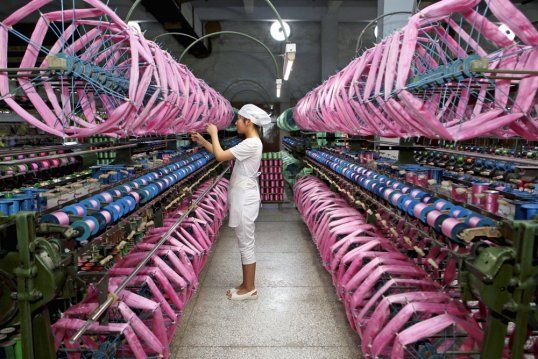Adapting to U.S. Trade Restrictions: Strategies for Chinese Firms to Thrive in a Challenging Market
Recent Developments and Impact
In a recent move underscoring heightened geopolitical tensions, the U.S. government has added 42 Chinese firms to its export control list, attributing this decision to alleged support for Russian military activities. This designation complicates the manufacturing sector in China, as companies connected to these restricted entities may face substantial disruptions. Understanding the background, implications, and strategic adjustments available is critical for manufacturing businesses operating in China.
Key Event: Expansion of U.S. Export Controls
On August 25, 2024, the U.S. government expanded its export control list to include 105 entities, of which 42 are Chinese. The affected companies are alleged to support Russia’s military by providing technology, equipment, or resources. As a result, U.S. suppliers now need hard-to-secure licenses to conduct business with these firms, creating significant barriers and placing affected entities at risk of being cut off from global manufacturing supply chains. This development aligns with the U.S.’ strategy to apply economic pressure on Russia and restrict access to American technology for companies supporting foreign military adversaries.
Historical Context and the Role of Export Controls
The U.S. has long used export controls as a strategic tool to prevent sensitive technologies and products from reaching entities deemed risks to national security. Updates to the export control list often reflect geopolitical shifts, impacting global trade. The inclusion of Chinese firms highlights escalating U.S.-China trade tensions, now closely tied to global responses to Russia’s military actions. The latest restrictions underscore a growing emphasis on de-risking supply chains and minimizing dependence on entities linked to sensitive regions.
Why This Matters: Key Implications for Chinese Manufacturing
Disruption of Manufacturing Supply Chains
The inclusion of Chinese entities on the export control list disrupts the broader manufacturing ecosystem. Many large manufacturers in China operate within complex networks of smaller suppliers and partners who are crucial for production. If a large, restricted entity is affected, its smaller partners may also encounter disruptions, impacting production schedules, capacity, and delivery timelines.Wider Economic and Geopolitical Consequences
This action could signify a further decoupling between the U.S. and China, reshaping the global manufacturing landscape. Firms reliant on Chinese suppliers might face new compliance challenges and legal risks. The ripple effects can extend to investment flows, technology partnerships, and economic relations beyond direct U.S.-China trade, impacting manufacturers at every level.Compliance and Risk Management Challenges
With a more complex regulatory environment, manufacturing firms in China must prioritize compliance to avoid severe penalties, which may include fines or further restrictions. U.S. export controls now demand heightened vigilance to prevent inadvertent trade with restricted entities, urging businesses to reassess their partnerships, supplier networks, and risk mitigation measures.
Why This Topic Matters: Strategic Risks and Considerations
In China’s manufacturing sector, dense networks of suppliers, subcontractors, and partners mean that even indirect ties to restricted entities can pose significant risks. For businesses, mitigating these risks requires both vigilance and adaptability. Historically, Chinese manufacturing is characterized by highly interconnected supply chains, where restrictions affecting one entity can cascade through numerous smaller players. Therefore, U.S. trade restrictions have the potential to impact even those companies without direct involvement.
Key strategic considerations for manufacturers include:
Identifying Supply Chain Vulnerabilities
Assess whether direct or indirect ties to restricted entities exist within your supply chain, as this exposure could result in operational challenges or compliance risks.Ensuring Operational Continuity
Prepare for possible disruptions by diversifying suppliers, considering alternatives outside China, and developing contingency plans to sustain manufacturing capacity.Maintaining Regulatory Compliance
Compliance with U.S. regulations is essential to avoid penalties. Ensure all transactions and partnerships are carefully evaluated, with proactive measures to address evolving U.S. restrictions.
How China Agent Ltd Supports Chinese Manufacturing Firms
China Agent Ltd specializes in helping manufacturing firms navigate complex regulatory landscapes. Our team offers in-depth support to ensure continuity and compliance:
Comprehensive Supply Chain Audits
We analyze your entire supply chain, identifying any connections to restricted entities. This insight allows you to make informed, strategic decisions to mitigate risks and maintain operations.Supplier Diversification Planning
Given the interconnected nature of manufacturing in China, diversifying your supplier base is essential. We assist in locating alternative suppliers both within and outside China, helping you secure a resilient supply chain.Compliance Advisory and Support
We provide expert guidance on navigating U.S. export controls, including contract reviews, regulatory changes, and risk management strategies, ensuring your manufacturing business remains compliant.On-the-Ground Market Intelligence and Oversight
With a strong local presence, we offer real-time insights and oversight, giving you critical information to stay ahead of potential disruptions in the manufacturing sector.Contingency and Risk Mitigation Planning
Our team develops robust contingency plans to address potential disruptions, covering alternate sourcing, inventory adjustments, and logistical changes to maintain manufacturing flow.
By partnering with China Agent Ltd, you gain the expertise and resources needed to stay proactive, stable, and resilient amid geopolitical shifts. Contact us to learn more about how we can help safeguard your manufacturing business in this complex environment.

